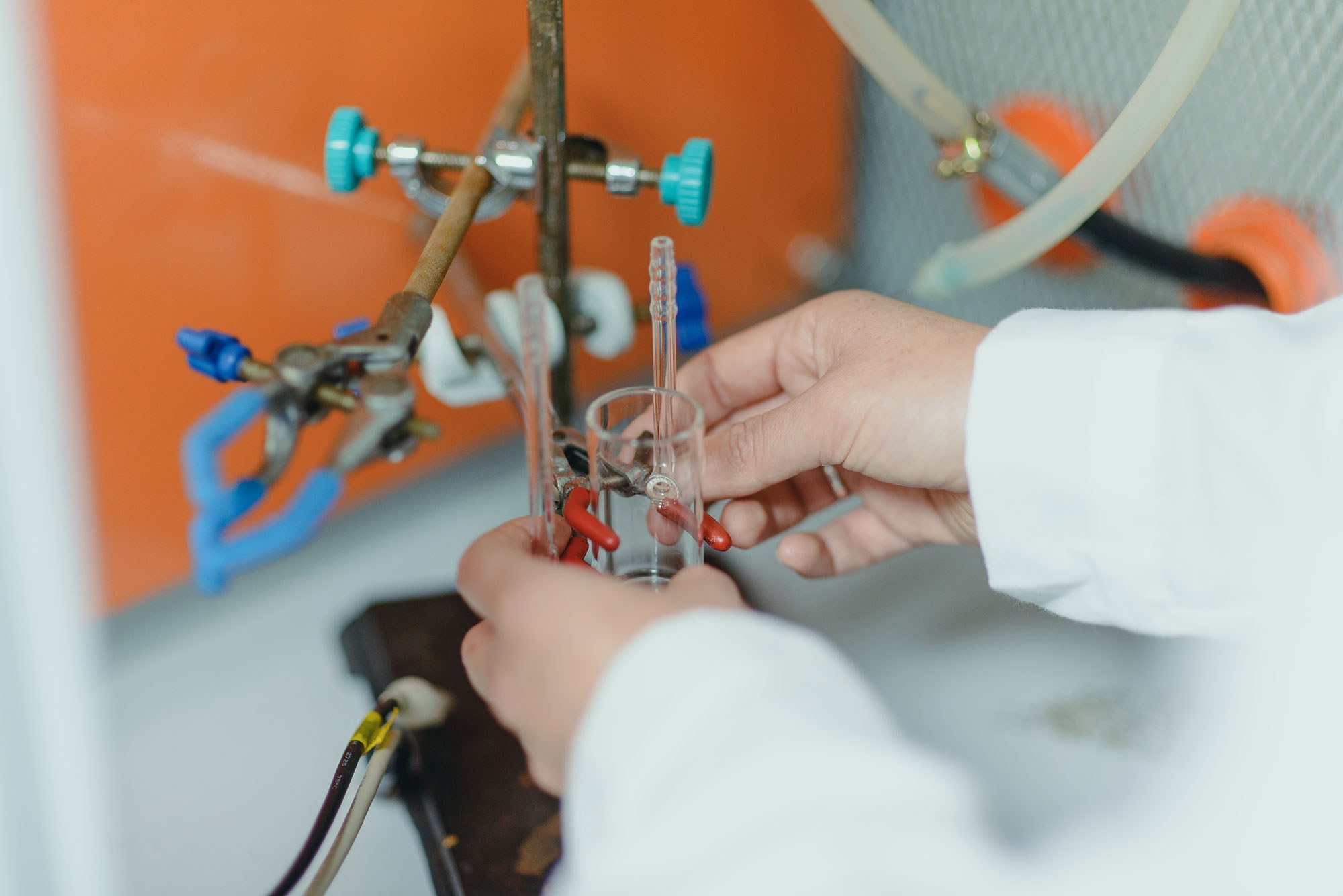Rodríguez-González, F. E., Pérez, G., Niebla, V., Jessop, I., Martin-Trasanco, R., Coll, D., Ortiz, P., Aguilar-Vega, M., Tagle, L. H., Terraza, C. A. & Tundidor-Camba, A. (2020). New Poly (imide) s Bearing Alkyl Side-Chains: A Study on the Impact of Size and Shape of Lateral Groups on Thermal, Mechanical, and Gas Transport Properties. Membranes, 10(7), 141. https://doi.org/10.3390/membranes10070141
Abstract: A set of five new aromatic poly(imide)s (PIs) incorporating pendant acyclic alkyl moieties were synthesized. The difference among them was the length and bulkiness of the pendant group, which comprises of linear alkyl chains from three to six carbon atoms, and a tert-butyl moiety. The effect of the side group length on the physical, thermal, mechanical, and gas transport properties was analyzed. All PIs exhibited low to moderate molecular weights (Mn ranged between 27.930–58.970 Da, and Mw ranged between 41.760–81.310 Da), good solubility in aprotic polar solvents, except for PI-t-4, which had a tert-butyl moiety and was soluble even in chloroform. This behaviour was probably due to the most significant bulkiness of the side group that increased the interchain distance, which was corroborated by the X-ray technique (PI-t-4 showed two d-spacing values: 5.1 and 14.3 Å). Pure gas permeabilities for several gases were reported (PI-3 (Barrer): He(52); H2(46); O2(5.4); N2(1.2); CH4(1.1); CO2(23); PI-t-4 (Barrer): He(139); H2(136); O2(16.7); N2(3.3); CH4(2.3); CO2(75); PI-5 (Barrer): He(44); H2(42); O2(5.9); N2(1.4); CH4(1.2); CO2(27); PI-6 (Barrer): He(45); H2(43); O2(6.7); N2(1.7); CH4(1.7); CO2(32)). Consistent higher volume in the side group was shown to yield the highest gas permeability. All poly(imide)s exhibited high thermal stability with 10% weight loss degradation temperature between 448–468 °C and glass transition temperature between 240–270 °C. The values associated to the tensile strength (45–87 MPa), elongation at break (3.2–11.98%), and tensile modulus (1.43–2.19 GPa) were those expected for aromatic poly(imide)s.
Pablo Ortiz
pablo.ortiz@umayor.cl


